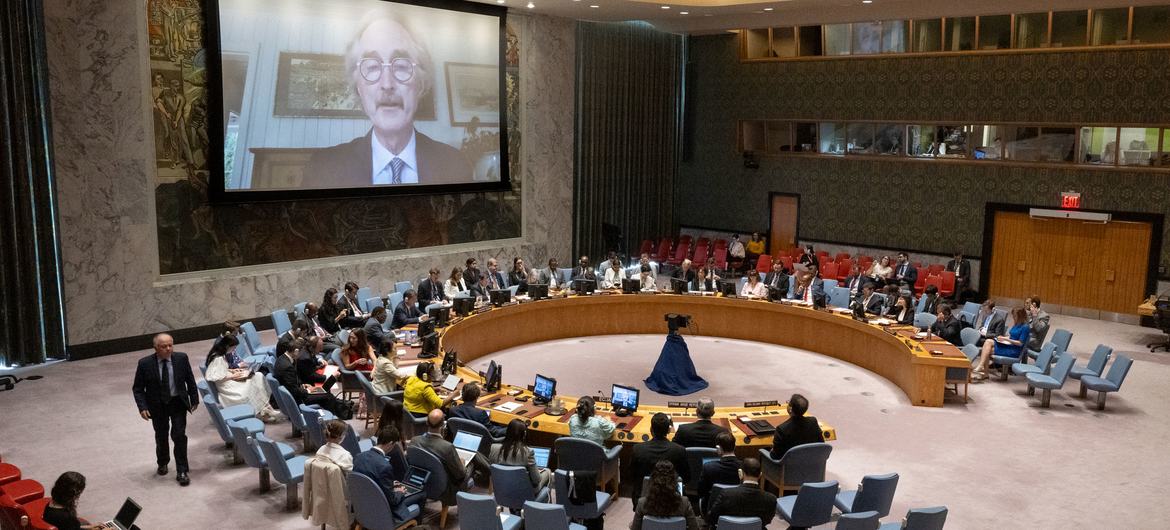LOC22:42
19:42 GMT
 UN Special Envoy for Syria Geir Pedersen In a videoconference
UN Special Envoy for Syria Geir Pedersen In a videoconference
NEW YORK, Aug 21 (KUNA) - The UN Special Envoy for Syria warned Thursday that amid a strained ceasefire and military skirmishes in Syria, the political transition "remains on a knife's edge".
In a videoconference briefing to the UN Security Council, Geir Pedersen clarified that in Sweida governorate, where sectarian violence in July also spurred conflict in the capital Damascus, the 19 July ceasefire has come under strain, but the conflict has not resumed so far.
"We are still seeing dangerous hostilities and skirmishes on the margins of Sweida, and violence could resume at any moment," he said.
In northeast Syria, efforts to implement the 10 March agreement between the interim security forces and the mostly-Kurdish Syrian Democratic Forces (SDF) continue. Just this month, there have been spikes in violence between the two militaries in the Aleppo governorate.
While attempts to convene the two sides outside of the country have been unsuccessful, Pedersen welcomed reports of contacts between officials.
Despite these security incidents, Pedersen stressed that the situation has been relatively calm this month, applauding the efforts of those who have worked to tamp down hostilities.
However, in terms of the political situation, "the country remains deeply fragile and the transition remains on a knife-edge," the UN official cautioned.
After 13 years of civil war, Pedersen underscored the need for an inclusive, Syrian-led political transition that enables the Syrian people determine their own future peacefully, independently and democratically.
The UN envoy addressed the continued ground operations by Israeli occupation forces in southwestern Syria, stressing that these actions are "unacceptable."
Pederson urged the Security Council to redouble its efforts toward accountability and civilian protection, and to renew its commitment to helping Syria "move from a dark past toward a brighter future."
He pointed to the decree establishing a framework for elections for two-thirds of the members of the Interim People's Council in Syria, explaining that the success of this process requires "measures to ensure transparency and openness, and to include all major Syrian groups as voters and candidates, with equal and clear participation of women." (end)
ast.ibi